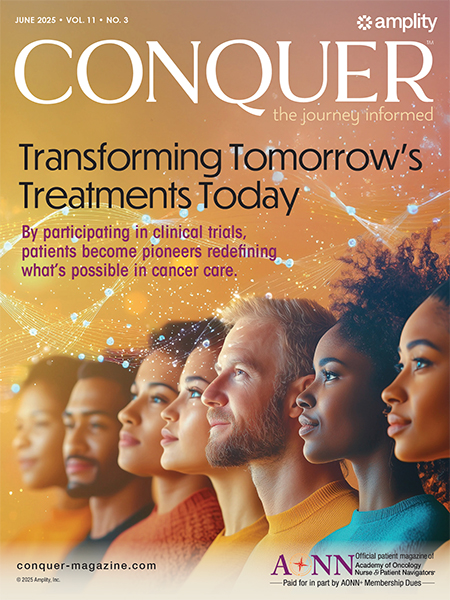Navigation & Survivorship News
Financial Toxicity and Patient Navigation
Financial toxicity describes financial burden and stress caused by cancer treatment for patients and their caregivers. Financial distress may include lost wages or employment as a result of cancer, along with lost health insurance coverage. Helping patients navigate financial choices and challenges is a critical part of patient navigation. Unfortunately, many health care professionals are not comfortable asking about financial challenges and are not fully aware of resources available to support their patients' care. We invite you to learn how you can overcome this gap to better help your patients!
Not a Navigator? The Oncology Navigation Standards of Professional Practice Can Still Work for You!
It turns out that the Oncology Navigation Standards of Professional Practice aren’t just for clinical and patient navigators. In her latest contribution to the AONN+ member blog, Sharon Gentry explains how people in nonclinical roles can benefit from these standards too.
Fall is Here—Time to Get Vaccinated
Changing leaves and pumpkin spice coffee aren’t the only things we should be thinking about this fall. In her latest Insights into Navigation blog, Lillie D. Shockney highlights the importance of routine vaccines for navigators and our patients.
Raising Awareness about Cancer Survivor Needs
Awareness campaigns are wonderful ways to share important information with your community, but they can take significant time and energy to produce. GW Cancer Center is helping to make it easier for you to raise awareness during cancer awareness months through a series of comprehensive “plug and play” campaigns that do the legwork for you. Be sure to check out their campaigns for breast and lung cancer in October!
AONN+ Helping to Bring Advanced Diagnostic Technology to Providers and Patients
Early detection is key in the fight against cancer. Now, a powerful tool could make early detection easier—all with a simple blood test. Sharon Gentry’s latest contribution to the AONN+ member blog shares how the Academy and navigators at-large are playing an important role in bringing this cutting-edge technology to providers and their patients.
Connecting Patients with Resources—Do They Follow Through?
Can we limit the amount of information that goes unheard and/or is incorrectly recalled by patients? Lillie D. Shockney shares best practices on how to deliver memorable follow-up instructions in her latest contribution to the Insights into Navigation blog.
Oncology Provider Experiences During the COVID-19 Pandemic: Changes to Survivorship Care
The COVID-19 pandemic has disrupted healthcare to an unprecedented degree. This article provides an overview of the burden of the pandemic on provider outlook and describes changes to survivorship care.
Financial Barriers to Care
Amid rising inflation, we need to reassess patients for their financial hardships and the assistance we can offer.
Where Are the Local Navigator Networks (LNN)?
AONN+ has been making a concerted effort to develop a local and regional network of navigators to facilitate communication and education among peers and to improve patient outcomes and survivorship.
Updated Patient Navigation Guide!
The GW Cancer Center offers updated training materials and resources for patient navigators.
Thank You to Our Corporate Sponsors and Alliance Partners!

Major Corporate Sponsor

Patron Corporate Sponsor

Patron Corporate Sponsor

Patron Corporate Sponsor

Industry Relations
Council Member

Industry Relations
Council Member

Industry Relations
Council Member

National Alliance Partner

National Alliance Partner

National Alliance Partner

National Alliance Partner

National Alliance Partner

National Alliance Partner
Privacy Notice | Terms of Use
© 2009- DBA AONN+ Academy of Oncology Nurse & Patient Navigators® | PO Box 357387, Gainesville, FL 32635-7387 |
AONN+ DBA AONN+ is a 501(c)(6) organization under federal tax guidelines. AONN+ Foundation for Learning, Inc. a 501(c)(3) organization under federal tax guidelines.
AONN+ Advantage, LLC, a wholly owned subsidiary of AONN+.


